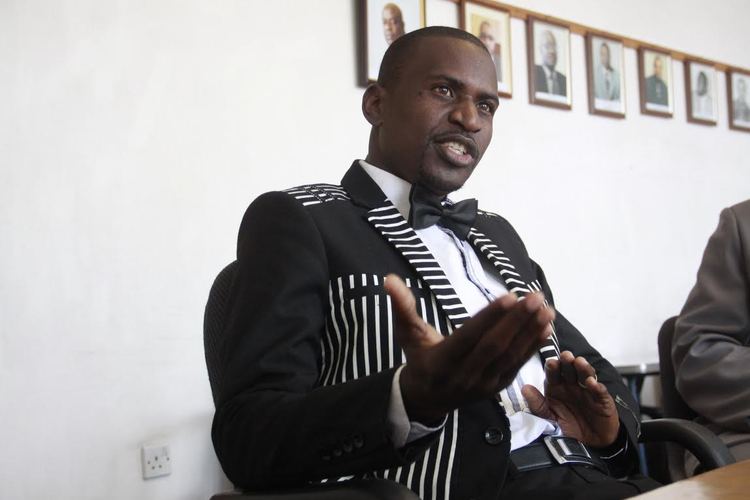The Sunday Mail

Years ago when writing the tragi-comedy “Hamlet”, Shakespeare noted that “there is a divinity that shapes our ends”.
Although scientific breakthroughs have solved some of life’s conundrums since Shakespearean times, I am afraid when confronted with failure, illness and even death, the majority of us still tend to turn outside of ourselves to answer the riddle of unfortunate circumstances.
I was reminded of this quotation when I learnt that someone with cancer was given “holy water” in a last-ditch attempt to restore their health.
Whether this water is the reason why they are still alive, albeit struggling to stay so is a story on its own. However, suffice to say that stories such as these are now common social currency, resulting in quite a bit of traffic between orthodox churches and Pentecostal ones.
Similarly, a certain lady had an ectopic pregnancy and whilst writhing in pain on the hospital bed, her cousin put her on the phone with a pastor who ordered her to “get off that bed NOW and walk”!
It would seem that the pastor had convinced himself that the reason why she was in hospital was because of some evil spirit, and not simply that her pregnancy had formed in the fallopian tubes.
According to my mum’s friend who was lucky enough to witness this modern-day tragi-comedy, the woman got off the bed in a huff and walked to the window as instructed. When asked if the pain had gone, she answered that it had, but almost collapsed shortly after and had to be assisted to get back on the bed.
She was only discharged from hospital a week later and took another week to fully recover.
It is on account of such stories, I suppose, that my mother — who was born and bred in an orthodox church — asked me what “mweya yemadzinza” are and whether some people were lying in hospital beds as a result of these evil spirits casting horrific spells throughout family lineages.
Her question may seem naïve to those who dabble in ‘‘chechi dzemweya’’ with regularity, but it is a worthy one.
Perhaps this is because traditional churches hardly have time to breathe fire and brimstone at the deceased, although this idea seems to have spread in popularity with the proliferation of Pentecostal churches and the awe-inspiring pastors and prophets, whose walk of fame is paved in “miracles” and “wonders”.
Even as I write, I realise that this is a subject of much contention, and the purpose of this article is not to negate the authenticity of any church or religion. It is not my intention either to debate the presence or lack thereof of spiritual determination, particularly evil influences on man’s destiny but to probe some of our intents and purposes on this subject.
At the heart of the matter is a simple truth — that we (myself included) have come to believe that the most effective and fervent of prayers these days, be they for healing, marriage, fertility or prosperity, have to be punctuated with a zealous rebuke of vengeful generational spirits.
Whether this is a result of divine foresight by the current breed of prophetic powerhouses, or simply a preference on our part to blame the unknown for unfortunate circumstances — man-made or otherwise — is something I also struggle to understand.
Of course, at face value it would seem a fantastic idea, but is it not true that the world as we know it has always been in a state of constant struggle between good and bad?
To this end, it may be folly not to believe that the spiritual realm is as real as the physical world we live in.
The fact that we have nouns since time immemorial for good and bad, such as God and Satan, angels and demons, is — even though flimsy — proof nonetheless that we may not be in control of our own ends as we would like.
Having spent a good six years at a boarding school, I would be the last person to dismiss the influence the spiritual realm as I witnessed strange manifestations in fellow students, some who even confessed to be possessed with the spirit of witchcraft passed on by their forebears.
Nonetheless, I think the point my mother made by asking a seemingly rhetorical question is that it does seem a bit far-fetched to believe that every calamity that befalls us is a result of the punitive action meted out to us, courtesy of our dead ancestors.
It seems that others have ceased to believe that to a greater extent, man is the architect of his own destiny, nor are they inclined to acknowledge that some of the problems that abound in our world today have more to do with personal and/or behavioural responsibility than anything else.
It is, therefore, worrisome that some characters absolve themselves from the reality of life and instead opt to hide behind the pomp and fanfare dedicated to deliverance from a buffet of spirits apparently responsible for some of their problems.
There are those who need such spiritual intervention, but can the rest of us begin the process of our own deliverance by admitting that we are where we are because we live in an imperfect world of which failure, sickness and death are an unwritten rule.
For some, it may be wise to realise the import of the choices that we made or failed to make. Even more importantly, whether medical conditions are a result of our sins or the sins of our fathers, they can be rectified through medical intervention. So before we start casting aspersions at unseen spiritual beings, we need to trust the process.
Yes, “Adam ate the apple and our teeth still ache”, but more often than not, the reality is that in spite of our best efforts, our bodies sometimes fail us.
I am just thankful that the Almighty gave man the opportunity and wisdom where possible to rectify what is wrong medically. However, beyond that, it is in our best interest to remember that apart from “mweya yemadzinza” and being personally accountable for the lives we live, we are but mortal.






